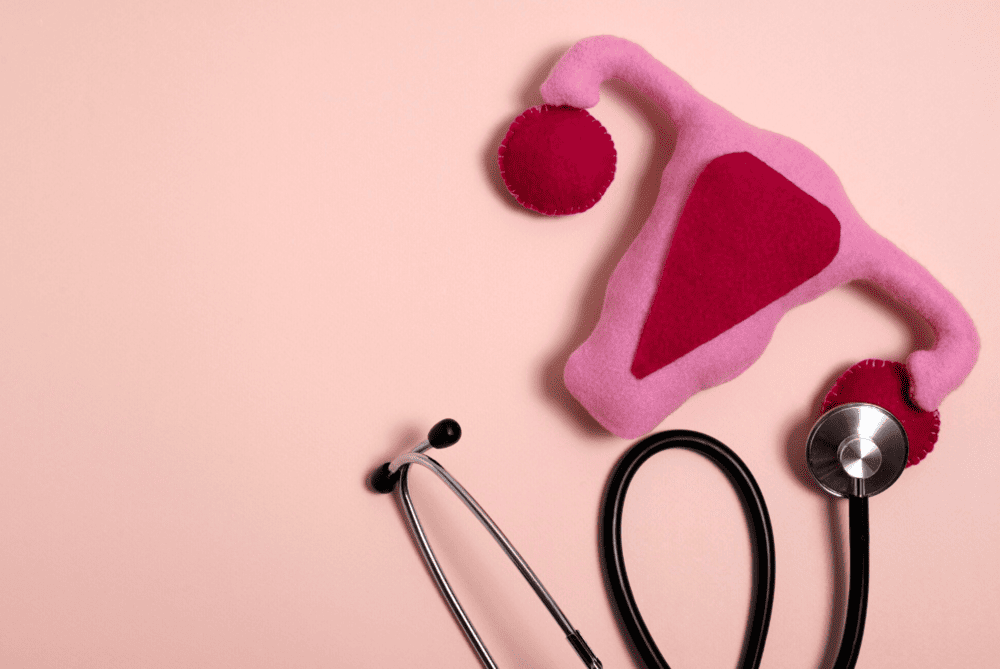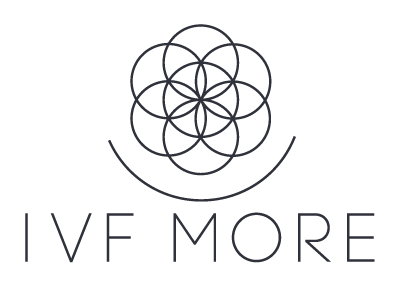Can Egg Restoration Help Women with Diminished Ovarian Reserve (DOR)?
August 2025

Introduction: Facing the Challenges of Diminished Ovarian Reserve
When you’re trying to have a baby, hearing that you have diminished ovarian reserve (DOR) can feel overwhelming. DOR means your ovaries have fewer eggs left than expected for your age—and that those eggs may not be as healthy as needed for a successful pregnancy. It is one of the most common reasons fertility treatments like IVF fail.
But what if instead of replacing your eggs through donation, there was a way to restore their quality? That’s exactly what IVF MORE® offers.
This blog explores how egg restoration with IVF MORE® may offer a real solution for women with DOR, helping improve their chances of a successful pregnancy using their own eggs.
What Is Diminished Ovarian Reserve (DOR)?
Diminished ovarian reserve refers to a decrease in both the quantity and quality of eggs in a woman’s ovaries. It’s typically diagnosed through blood tests and ultrasounds that evaluate:
- AMH levels (Anti-Müllerian Hormone)
- FSH levels (Follicle-Stimulating Hormone)
- Antral Follicle Count (AFC)
DOR can occur due to:
- Age (commonly after 35)
- Genetics
- Medical treatments (chemotherapy, radiation)
- Endometriosis
- Autoimmune disorders
- Unexplained reasons
Symptoms are often silent until fertility problems arise, making early diagnosis crucial for timely intervention.
Why Is DOR So Challenging for IVF?
Women with DOR often face:
- Fewer eggs retrieved during stimulation
- Poorer egg quality
- Lower fertilization rates
- Higher risk of embryo abnormality
These factors significantly lower the chances of success with traditional IVF, leading many women to be told that egg donation is their best option
What Is Egg Restoration with IVF MORE®?
IVF MORE® (Magnetic Ovulatory Restoration) is an advanced fertility technique that combines assisted reproduction with regenerative science. Instead of focusing only on egg retrieval, IVF MORE® aims to restore egg health at the cellular level.
How It Works:
- Metabolic Diagnosis: Each egg is analyzed for mitochondrial activity, which determines its energy potential.
- Cytoplasmic Enrichment: Healthy growth factors from your own cells are introduced into the eggs to boost energy production.
- Magnetic Incubation: Eggs are cultured under magnetic fields to enhance cell division and minimize chromosomal errors.
- Targeted Fertilization: Only the highest-quality sperm is selected using PICSI, optimizing fertilization.
This process doesn’t just select better eggs—it improves the eggs you already have, making it a unique solution for women with DOR.
Can Egg Restoration Help with DOR?
Yes—IVF MORE® is specifically designed to address the challenges of diminished ovarian reserve.
Benefits for Women with DOR:
- Improves egg quality even when quantity is low
- Preserves genetic connection by using your own eggs
- Increases fertilization success by boosting mitochondrial energy
- Reduces risk of genetic abnormalities in embryos
- Minimizes need for donor eggs
Unlike conventional IVF, which often fails to compensate for poor egg quality, IVF MORE® focuses on restoring functionality to the eggs you do have.
Key Differences Between IVF MORE® and Traditional IVF for DOR
Traditional IVF is often limited when it comes to egg quality. It primarily uses hormonal stimulation to retrieve as many eggs as possible, with selection based on visible morphology. However, this approach does not enhance the eggs’ cellular function, which is especially critical for women with DOR.
IVF MORE® takes a radically different approach. Instead of just collecting and selecting eggs, it actively restores them. By evaluating metabolic health and applying techniques such as cytoplasmic enrichment and magnetic incubation, IVF MORE® improves egg function from the inside out.
Additionally, while traditional IVF may often require the use of donor eggs when egg quality is low, IVF MORE® increases the chance of a successful pregnancy using a woman’s own eggs. This makes it a valuable and more personal option for those wanting to maintain their genetic connection with their baby.
In summary, IVF MORE® offers enhanced egg quality support, sophisticated egg selection based on internal metrics, reduced genetic risk through cellular restoration, and a real chance to use your own eggs—even in complex fertility cases.
Who Is a Good Candidate for Egg Restoration?
Women who may benefit most from IVF MORE® include:
- Those diagnosed with diminished ovarian reserve
- Women over 35 struggling with egg quality
- Individuals facing repeated IVF failures
- Women advised to consider egg donation
- Patients with endometriosis or PCOS
Each case is unique, so a full fertility evaluation is essential.
What Results Can You Expect?
While outcomes vary depending on the individual, egg restoration with IVF MORE® has shown:
- Improved fertilization rates
- Higher embryo quality
- Increased chances of implantation
- Greater likelihood of live birth
By improving your own egg quality, IVF MORE® opens a door to successful pregnancy even when traditional IVF has failed.
Egg Restoration vs. Egg Donation: A Personal Decision
Many women are hesitant to pursue egg donation because it means letting go of their genetic link to their child. IVF MORE® provides a real alternative by allowing you to try again with your own restored eggs.
Why This Matters:
- Emotional satisfaction of using your own biology
- Personal sense of empowerment and hope
- Opportunity to delay or avoid third-party reproduction
For women who value genetic continuity, this makes a significant difference.
Frequently Asked Questions
Is IVF MORE® safe for women with low ovarian reserve? Yes. The protocol is customized based on your health and egg function, and it’s performed by trained reproductive specialists.
Can I combine IVF MORE® with egg freezing? Yes. Restored eggs can be preserved through female egg preservation for future use.
How do I know if I’m a candidate? A comprehensive evaluation with fertility specialists can confirm if IVF MORE® is right for your specific case.
Conclusion: A New Path Forward for Women with DOR
Diminished ovarian reserve no longer has to be the end of your fertility journey. Thanks to advanced IVF techniques like IVF MORE®, many women are now able to pursue pregnancy using their own eggs—even when conventional treatments have failed.
If you’re searching for ways to improve egg quality or delay egg donation, egg restoration could be the personalized, science-backed option you’ve been waiting for. Learn more about IVF MORE® and schedule your consultation today.
